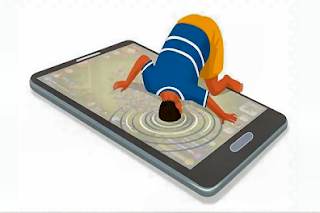In today’s digital age, the internet is a powerful tool for health education—but it can also be a double-edged sword. For many, what begins as a harmless search about a headache or skin rash can spiral into overwhelming anxiety about life-threatening diseases. This phenomenon has a name: cyberchondria.
Cyberchondria is the excessive or repeated online searching for medical information, which leads to increased health anxiety. With millions of people turning to search engines for health answers before consulting a doctor, understanding the psychological, behavioral, and physiological effects of this trend is essential. This article dives into the causes, symptoms, mental health impacts, and most importantly—ways to mitigate this growing concern.
🤔 What Is Cyberchondria?
Cyberchondria is a modern-day variant of hypochondria (now referred to as illness anxiety disorder), where individuals excessively worry about their health despite medical reassurance. The key difference is that cyberchondria is directly linked to internet usage and digital health searches.
People with cyberchondria often jump from one health site to another, comparing symptoms, diagnosing themselves, and assuming worst-case scenarios. This creates a self-reinforcing loop of anxiety and reassurance-seeking behavior.
🏠 Key Features of Cyberchondria
- Compulsive searching of medical symptoms and conditions online
- Escalating anxiety the more one searches
- Increased mistrust in doctors or repeated visits for reassurance
- Difficulty stopping the search even after reassurance
📈 Why Is Cyberchondria on the Rise?
Several modern factors contribute to the increasing prevalence of cyberchondria:
🌐 Easy Access to Health Information
The internet makes health information more accessible than ever. But not all of it is accurate. Complex medical terminology, unverified content, and fear-inducing headlines contribute to misinterpretation and anxiety.
🧳 Increase in Health-Conscious Behavior
The global focus on preventive healthcare and self-monitoring (e.g., wearable fitness trackers) has increased personal responsibility for one’s health. But without context, symptoms can be alarming.
🎨 Media Sensationalism and SEO
Many health articles are written with emotionally charged titles to attract clicks, even if the risk described is statistically rare. This fuels irrational fear.
💻 Algorithmic Overload
Search engines suggest related conditions, many of which are severe, amplifying fear. A basic headache search might link to brain tumors within seconds.
🧬 Post-Pandemic Mental Health Awareness
The COVID-19 pandemic triggered global health anxiety. As a result, people are now more attuned to bodily symptoms, often scrutinizing minor changes.
🚫 Psychological Effects of Cyberchondria
Cyberchondria doesn’t just affect behavior—it deeply influences mental well-being. Some of the common consequences include:
- Increased anxiety and panic attacks
- Difficulty concentrating due to obsessive thoughts
- Sleep disturbances caused by health worry
- Frequent reassurance-seeking from friends, family, and doctors
- Reduced quality of life and increased stress hormones
Over time, individuals may develop a pattern of catastrophic thinking, interpreting benign symptoms as signs of severe illness. This leads to overuse of healthcare services and repeated testing, further reinforcing health anxieties.
🪑 How Does It Affect Your Physical Health?
Ironically, health anxiety itself can create or worsen physical symptoms:
- Palpitations and chest tightness
- Gastrointestinal distress (e.g., IBS-like symptoms)
- Muscle tension and pain
- Headaches from constant stress
These symptoms can lead users back to the internet, perpetuating the cycle of anxiety.
💼 Health Professionals’ Perspective
Doctors often report difficulty managing patients who are convinced by online diagnoses. Many patients arrive with specific tests they want performed or dismiss professional advice in favor of internet findings. This not only complicates clinical care but also puts undue stress on both parties.
Still, health professionals agree that informed patients can be beneficial—when their research is balanced, well-sourced, and supplemented by medical expertise.
🪡 When Self-Education Becomes Self-Harm
Learning about your body and health is empowering—but not when it triggers chronic worry. Signs that your internet searching may be harmful include:
- Searching for symptoms multiple times daily
- Feeling worse or more anxious after each session
- Ignoring doctor advice in favor of internet conclusions
- Canceling activities or social plans due to health concerns
💡 How to Manage Cyberchondria
1. Set Time Limits for Health Searches
Allocate a fixed amount of time per week for health-related reading—no more than 20-30 minutes a few times a week.
2. Stick to Credible Sources
Read articles that are medically reviewed, written by qualified health experts, or endorsed by medical institutions. Avoid anonymous forums or personal anecdotes.
3. Keep a Symptom Diary
Instead of repeatedly searching, note down symptoms and patterns. Share this record with your physician for a professional perspective.
4. Consult a Mental Health Expert
Persistent health anxiety may indicate generalized anxiety disorder or illness anxiety disorder. Cognitive Behavioral Therapy (CBT) has shown strong results in treating cyberchondria.
5. Practice Mindful Distraction
Engage in calming activities—exercise, art, nature walks, or breathing exercises—when the urge to search strikes. Redirect the energy.
6. Don’t Self-Diagnose with Serious Terms
Unless advised by a doctor, avoid interpreting symptoms as signs of serious illnesses like cancer, MS, or heart disease. Most symptoms are non-specific.
🚀 Balancing Online Research with Real Care
Being proactive about your health is a good thing. But it’s important to balance this curiosity with trusted, in-person guidance. Here’s how:
- Write down your concerns and questions before a doctor’s visit
- Discuss what you’ve read online with your physician openly
- Ask for clarification instead of making assumptions
- Respect the expertise of trained professionals
Use the internet to prepare for a consultation, not replace one.
Final Thoughts
Cyberchondria is a growing mental health concern that reflects our digital dependence and health vulnerability. While the internet offers an unprecedented level of access to information, it must be used wisely. Awareness, discipline, and support from both mental health professionals and physicians are essential to keep health anxiety in check.
By understanding your mind’s need for reassurance and learning to differentiate helpful research from harmful overanalysis, you can take control of your mental and physical well-being.
Remember: not every symptom needs a search engine—sometimes, it just needs a doctor.




Post a Comment
Post a Comment